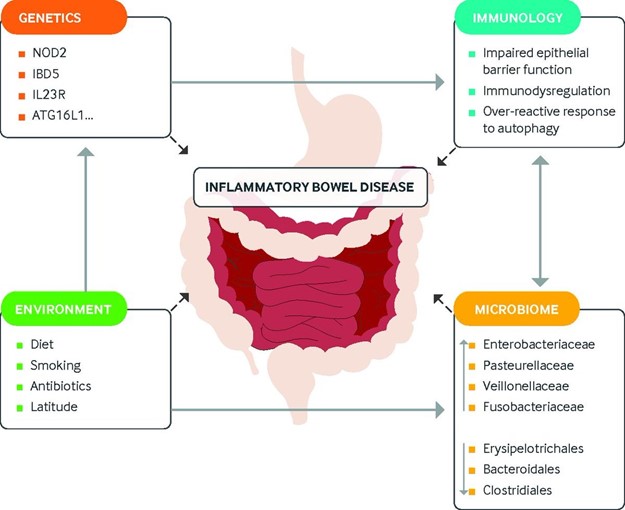A child is admitted to the hospital and diagnosed with inflammatory bowel disease. The nurse should evaluate the patient for which most likely associated symptoms?
Fever, tachypnea, and tachycardia
Frequent stools, weight loss, and hyperactive bowels
Frequent stools, fever, and tachycardia
Constipation, fever, and weight loss
The Correct Answer is B
IBD, which includes conditions such as Crohn's disease and ulcerative colitis, is characterized by chronic inflammation of the gastrointestinal tract. The symptoms can vary depending on the type and severity of the disease, but common symptoms in children with IBD include:
- Children with IBD often experience increased frequency of bowel movements, which may be loose or watery. This is often accompanied by urgency and a sense of incomplete evacuation.
- Chronic inflammation in the gastrointestinal tract can interfere with nutrient absorption, leading to poor appetite, decreased intake, and subsequent weight loss. In severe cases, malnutrition may occur.
- Inflammatory processes in the intestines can lead to increased motility and peristalsis, resulting in hyperactive bowel sounds.
Nursing Test Bank
Naxlex Comprehensive Predictor Exams
Related Questions
Correct Answer is C
Explanation
Crohn's Disease is an inflammatory bowel disease that can affect any part of the digestive tract. The goal of treatment is to control inflammation, relieve symptoms, and prevent complications. To achieve this, the healthcare provider may prescribe medication such as anti-inflammatory drugs, immunosuppressants, or biologic therapies that target specific inflammatory pathways.
These medications can help reduce inflammation and improve symptoms.
In addition to medication, nutritional therapy may also be recommended to help manage Crohn's Disease. However, dietary restrictions to reduce calorie and fat intake to lose weight or restrict foods containing gluten to control symptoms are not specific treatments for Crohn's Disease.
Keeping the child in isolation to prevent the spread of the infection is not relevant to Crohn's Disease, as it is not contagious.

Correct Answer is A
Explanation
Unequal scapula and hip heights can be indicative of spinal curvature, a key characteristic of scoliosis. As the spine curves, it can cause the shoulders and hips to appear uneven when observed from behind. This asymmetry is an important visual clue that warrants further assessment and evaluation.
Equal rib prominence and tight-fitting clothes, equal waist and shoulder angles, and symmetric chest expansion with deep breaths are not specific signs of scoliosis. These signs may not be affected by spinal curvature and are not typically used in the screening process for scoliosis.
It's important to note that scoliosis screenings may involve more comprehensive assessments, including the use of scoliometers or other measuring tools to evaluate the degree of spinal curvature. Any concerns or suspicions of scoliosis should be reported to appropriate healthcare professionals for further evaluation and management.

Whether you are a student looking to ace your exams or a practicing nurse seeking to enhance your expertise , our nursing education contents will empower you with the confidence and competence to make a difference in the lives of patients and become a respected leader in the healthcare field.
Visit Naxlex, invest in your future and unlock endless possibilities with our unparalleled nursing education contents today
Report Wrong Answer on the Current Question
Do you disagree with the answer? If yes, what is your expected answer? Explain.
Kindly be descriptive with the issue you are facing.
